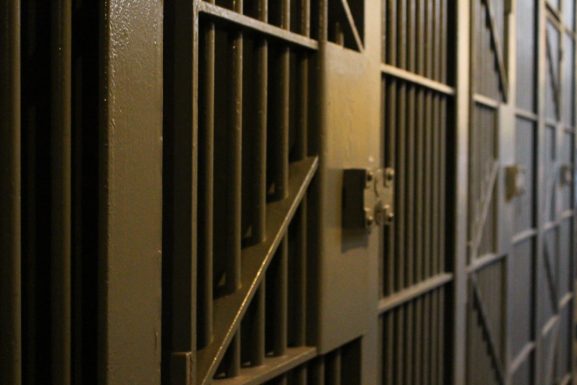
An anonymous letter landed on the Philadelphia District Attorney’s desk in 2012. It described an experience from a member of the Philadelphia Police Department. Two police officers on the job, away from three individuals — a male defendant, a trans woman and another male complainant — making misgendered statements and slurs.
“They [the trans woman] never knew that they were being misgendered or misidentified, they never knew that this was taking place,” said Joseph Mason, Philadelphia police officer for the 14th district.
But someone knew and that person was Mason.
Mason has served for more than 10 years with the Philadelphia Police Department. He has been open about his trans identity with the department since 2015.

“I didn’t identify them, I didn’t want them punished…I want them educated,” Mason said. “I want them to learn, I want them trained, I want them to know that this stuff — whether or not it’s in somebody’s hearing–that this doesn’t fly. People have rights, the trans people have rights.”
Mason’s anonymous actions led to a public initiative backed by city legislation. In 2013, Directive 152 was passed establishing policies for interactions between trans individuals and police officers in Philadelphia.
When Mason received the directive from the director of Philadelphia’s Office of LGBT Affairs, Nellie Fitzpatrick, he was proud of the impact he had made.
“Now there are 7,000 members in this department that will abide by that directive,” Mason said.

Deja Alvarez (above), community leader with GALAEI, was victimized more than 20 years ago as a trans woman.
“If somebody’s discriminating or hating against something, it’s usually because they don’t know anything about it, they don’t understand it,” Alvarez said. “And when you add that kind of human touch to it, you show my face as someone who is being discriminated against and abused and attacked just because of who I am, a lot of people will then empathize. The more people see us, it kind of desensitizes their hate almost.”
Alvarez said she has first-hand experience regarding discrimination and has worked to make strides in the LGBT community.
“It’s motivated all of my work that I do at this point,” Alvarez said. “I do a lot of advocacy and activism, I do a lot of work with the police and stuff now all of that is kind of it’s almost like that full-circle thing where I was the young trans woman that was abused mentally, physically, emotionally for years to finally standing up for myself and then now standing up for my community as a whole.”
Alvarez’s work as a leader at GALAEI, a queer latino social justice organization, has led her to become an organizer of the Trans Health Project. She is also the director of Divine Light LGBTQ Wellness Center, a shelter for the LGBTQ community.
Alvarez works with Fitzpatrick and Franny Price to educate police cadets on the policies of Directive 152.
“I think that there’s empowerment in what’s going on,” Alvarez said. “And empowering folks to be able to walk through the doors of a police district and say hey I have a complaint.”
Progress is made because of the communal relations between the police department and the LGBT community, Alvarez said.
“I think that acknowledging that is important and that’s what has helped the police department grow today, that they realized, yeah, they were messed up back then,” Alvarez said.
In addition to the progress with Directive 152, there has been the development of an organization within the Philadelphia Police Department for officers who are part of the LGBT community.

In 2015, the Gay Officer Action League, GOAL, was formed with Mason (above) as president.
“GOAL is a step in the right direction and I think it is important to let these officers know they are not alone,” said Mike Cermignano, a former Philadelphia police officer with the 26th and 3rd districts.
“There’s a saying that no matter what, male-female, black-white, we all bleed blue. Until that also reads straight-gay, we have work to do. All I know is that if you have my back and if you’re coming when I need help, I don’t care about any of that and most cops are the same way.”
The overall ambition of the officers is to protect all communities and the LGBT community is no exception.
“Our department doesn’t wait for the city to burn to fix problems, our department walks around and says ‘what do you need us to do so that we can prevent a problem from ever happening’,” Mason said, smiling broadly.
“I love Philadelphia for that reason.”
— Text, images and video by Allison Merchant and Taylor Smethers.











Be the first to comment